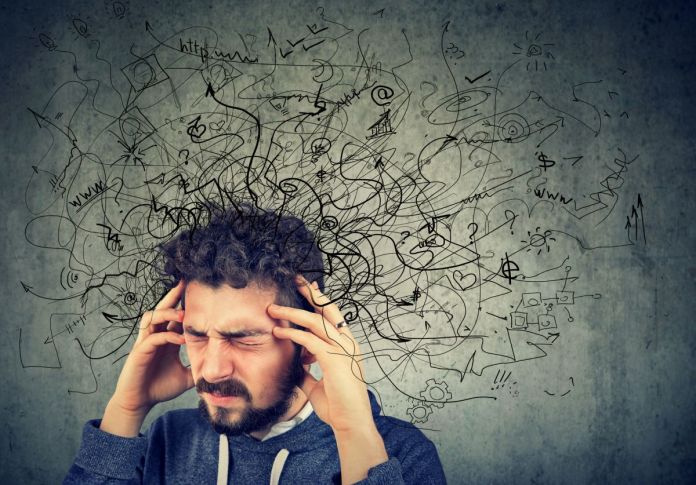Since the outbreak of the pandemic, most of the people are in quarantine. As people are stuck inside their homes, it has to lead to increased anxiety and stress due to the feeling of isolation. It is very important to first understand the difference between anxiety and stress so that you are able to better deal with them. We got in touch with Dr Nisha Khanna, a celebrity psychologist who deals in issues related to family, depression, stress, anxiety along with emotional issues. She highlighted the common symptoms and gave us some of the ways to beat stress and anxiety during the lockdown.

Stress is the body’s reaction to any change. The body can respond to these changes either physically, emotionally and even mentally. Stress that continues for a long period of time turn into distress, which can affect the body equilibrium in future. Some symptoms of stress are dizziness, increase the loss of appetite, headache, general aches & pains, tiredness and sleeping problems.
Anxiety, on the other hand, can be defined as a feeling of apprehension. People with anxiety feel excessive nervousness, fear and worry. Anxiety disorder tends to alter the way an individual processes emotions and behaves. Few symptoms of anxiety are feeling of restlessness, increased irritability, sleep problems and an uncontrollable feeling.
Common symptoms of Anxiety & Stress:

Google also conducted research during lockdown which shows that more and more people are searching about stress and therapy in India. According to the Indian Psychiatric Society, there is a 20% rise in cases related to mental illnesses. Another survey conducted in March shows that around 82% population in India is suffering from stress especially the age group of 35-49.
The biggest difference between stress and anxiety that stress is short-term. Also, stress can be either positive (Eustress) or negative (Distress) whereas anxiety can never be positive. Anxiety tends to stay for a long period of time and can impair social and occupational functioning. If you are fearful of certain situations in the future, then it is anxiety because fear happens due to anxiety never due to stress. Also, understand that stress is a temporary response while anxiety is sustained reaction.
Factors leading to increased anxiety :

• For some people striking a balance between work- life during lockdown is becoming challenging. They are not able to clearly distinguish, how much attention is required and on what. They have to look after house, food and of course office work adding to the pressure.
• Couples are not used to seeing each other 24×7, making it tougher for them to really stay around each other. This leads to frequent fights and due to the compatible issues, couples might find it challenging to discuss and communicate their feelings. Finding space and taking time off might also be testing.
• During the pandemic, people fear the financial issues creeping their way.
Financial anxiety is getting serious in people as the market has been dropping and eve unemployment will also be on the rise.
• The biggest challenge that people are facing is sleep problem, as their body is not getting tired and the energy is not utilized, people are not able to sleep through the night, as a result, they feel tired and stressed out the whole day.
• There are many people who are in abusive marriages. Abuse is not just physical but also emotional. Thus, staying in a lockdown can make things difficult for them. In such situations, it is not just stress and anxiety but can also lead to PTSD.
• Excessive media coverage related to pandemic can lead to high levels of anxiety. People watching the news the whole day about the same should remember that it won’t be very healthy to them.
Here are a few pointers that might help you to deal with stress & anxiety :

• The best way is to maintain a journal and to engage in various activities. This will help you to be productive and also busy.
• It is important to keep your body hydrated, so keep in mind to have lots of water and also engage in some exercise. Physical exercise won’t just help you become physically healthy but also mentally strong.
• In such times, it is important to check with your loved ones and also friends. You need an emotional outlet during such distress times. Try to stay away from the negative people who let you down and feed negative thoughts.

• The best way to deal with anxiety is to follow a routine. Even if you are in lockdown set a timetable and try to stick through it. Try to include some routine from your past routine.
• People should use this time of social distancing to look for things that make them happy and they should engage in such activities more and more. Remember you can’t make others happy if you’re not. So, focus on your happiness first and do things makes you feel alive.
• During the lockdown people are finding ways to take a business online. Even applications like Zoom and Google Suite are being used to conduct businesses and also to be in touch. Traffic on dating applications and even on Tik Tok has increased as people are getting bored.
• Practicing gratitude and being thankful for all the wonderful moments that you have had and will have will help you stay positive in such difficult times. Learn to appreciate each other, not just your partners but also your family members.
Dealing with anxiety and stress can be challenging. Despite repeated efforts, you might feel that you’re not able to with same. If you feel that the symptoms are present for a prolonged period of time and is also affecting your day to day functioning. Then it becomes very essential to seek the help of a counsellor. Taking 2-3 session can give you wonderful results and as counsellors can help you develop strategies to deal with anxiety and stress effectively.
(Dr. Nisha Khanna is a celebrity psychologist, TEDx speaker, certified EQ coach, certified couple facilitator and a motivational speaker. She is a Counselling Psychologist and a leading Pre n Post Marriage Counsellor in Delhi as well as in India. She deals in issues related to Family, Depression, Stress, Anxiety along with Emotional Issues. She is Expert TV and Radio Panelist, Blogger, Certified Faculty on Universal Humans Values and Professional Ethics (Level-I), Recipient of Several Awards and Worked with Different Govt. Organisations.)
(Featured Image Source: Open Mind Matters)




